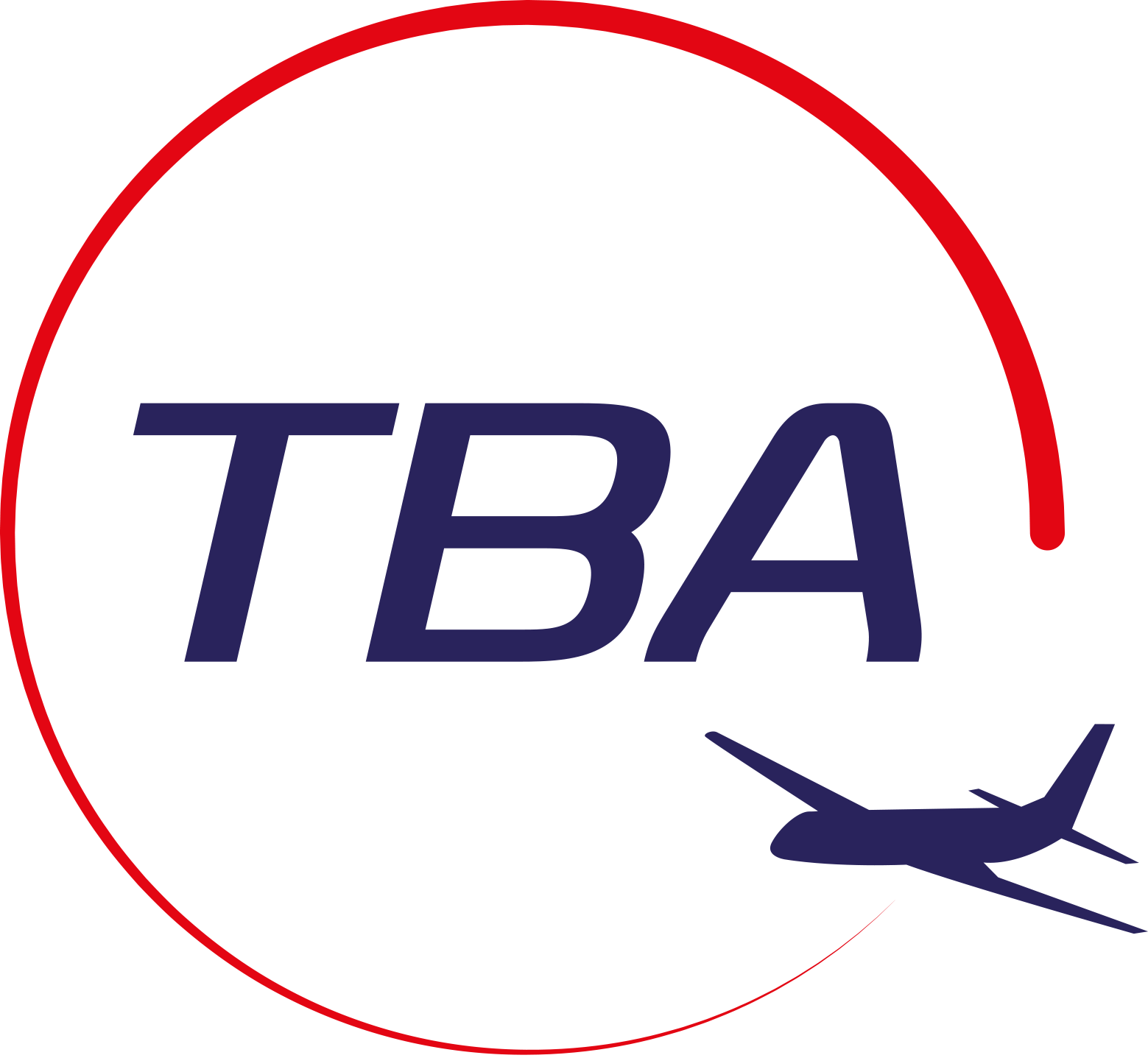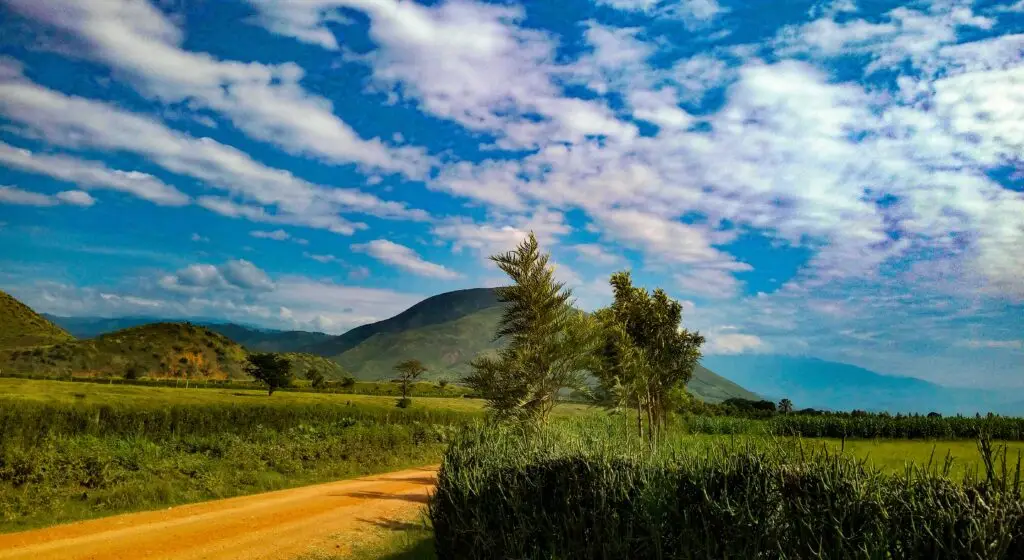
Research and knowledge are the first steps for Uganada Travel Business Assistance. Here is a fact file for Uganda to get you started. Contact us if you are looking to start a business in or expand your market to Uganda. We have consultants ready to help you on the ground in Uganda.
Achieve success abroad with Travel Business Assistance – Schedule your complimentary consultation call today!
Basic Facts
Origin of the name: Uganda is named after the Buganda kingdom, which encompasses a large portion of the south of the country, including the capital Kampala, and whose language Luganda is widely spoken throughout the country. The name Uganda is a Swahili word meaning “Land of the Ganda” which was first used by the Arab and Swahili traders on the East African coast to refer to the Bugandan Kingdom. It was adopted by British officials in 1884 when they established the Uganda Protectorate, centered in Buganda.
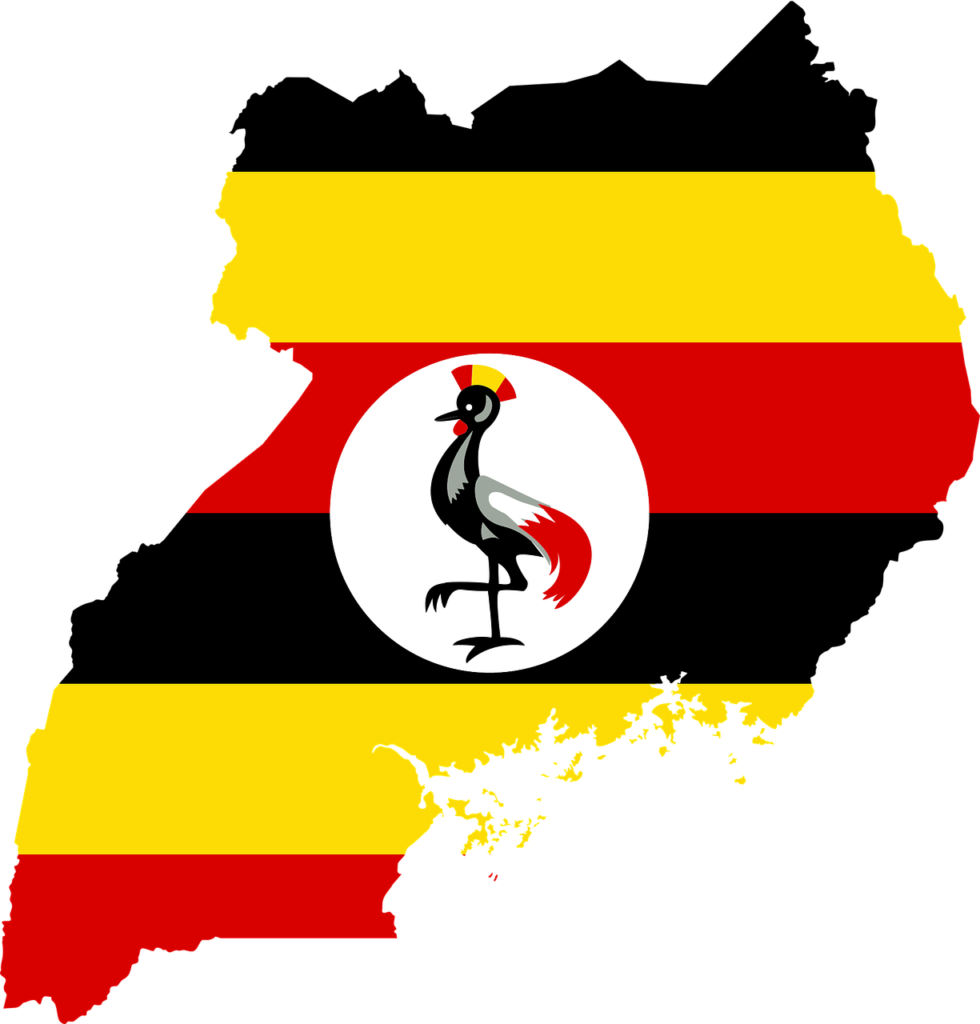 History & Independence: Paleolithic evidence of human activity in Uganda goes back to at least 50,000 years, and perhaps as far as 100,000 years. Uganda’s position along the central African Rift Valley, its favourable climate at an altitude of 1,200 meters and above, and reliable rainfall around the Lake Victoria Basin made it attractive to African cultivators and herders as early as the fourth century BCE. When Arab traders moved inland from their enclaves along the Indian Ocean coast of East Africa and reached the interior of Uganda in the 1830s, they found several African kingdoms with well-developed political institutions dating back several centuries. These traders were followed in the 1860s by British explorers searching for the source of the Nile River. Protestant missionaries entered the country in 1877, followed by Catholic missionaries in 1879. In 1888, control of the emerging British “sphere of interest” in East Africa was assigned by royal charter to the Imperial British East Africa Company, an arrangement strengthened in 1890 by an Anglo-German agreement confirming British dominance over Kenya and Uganda. The high cost of occupying the territory caused the company to withdraw in 1893, and its administrative functions were taken over by a British commissioner. In 1894, the Kingdom of Buganda was placed under a formal British protectorate. Britain granted internal self-government to Uganda in 1961, with the first elections held on March 1, 1961. Benedicto Kiwanuka of the Democratic Party became the first Chief Minister. Uganda maintained its Commonwealth membership.
History & Independence: Paleolithic evidence of human activity in Uganda goes back to at least 50,000 years, and perhaps as far as 100,000 years. Uganda’s position along the central African Rift Valley, its favourable climate at an altitude of 1,200 meters and above, and reliable rainfall around the Lake Victoria Basin made it attractive to African cultivators and herders as early as the fourth century BCE. When Arab traders moved inland from their enclaves along the Indian Ocean coast of East Africa and reached the interior of Uganda in the 1830s, they found several African kingdoms with well-developed political institutions dating back several centuries. These traders were followed in the 1860s by British explorers searching for the source of the Nile River. Protestant missionaries entered the country in 1877, followed by Catholic missionaries in 1879. In 1888, control of the emerging British “sphere of interest” in East Africa was assigned by royal charter to the Imperial British East Africa Company, an arrangement strengthened in 1890 by an Anglo-German agreement confirming British dominance over Kenya and Uganda. The high cost of occupying the territory caused the company to withdraw in 1893, and its administrative functions were taken over by a British commissioner. In 1894, the Kingdom of Buganda was placed under a formal British protectorate. Britain granted internal self-government to Uganda in 1961, with the first elections held on March 1, 1961. Benedicto Kiwanuka of the Democratic Party became the first Chief Minister. Uganda maintained its Commonwealth membership.
Government: Uganda is a unitary republic with an executive president elected every five years by universal adult suffrage, and a unicameral parliament with 375 elected members. Most of these members (238) are directly elected every five years by universal adult suffrage. The remainder are elected from special interest groups by electoral colleges: women, the defense forces, youth, disabled people and workers. Since 2005 there has been no limit on the number of terms a president may serve. The president appoints and leads the cabinet. The prime minister, appointed by the president, assists the president in the supervision of the cabinet.
Official Language: Uganda’s official language is English, which is spoken by most educated Ugandans.
Indigenous Languages: In Uganda the most spoken language in the capital city is Luganda, followed by English (also the official language since 1962), as all schools in Uganda use it in their studies due to the introduction of English during the colonial period. English is also the language of business and judicial matters. Most spoken after Luganda and English is Swahili. This language is more common in neighboring Kenya and Tanzania. Swahili is taught in schools as an optional additional language and it is mostly spoken by the Ugandan army. Uganda is a multilingual country with over 70 generally estimated languages spoken. 43 of its living languages fall into four main families—Bantu, Nilotic and Central Sudanic and Kuliak. Of these, 41 are indigenous and 2 are non-indigenous. Furthermore, 5 are institutional, 27 are developing, 7 are established, 2 are endangered, and 2 are almost extinct. There is also a Ugandan Sign Language.
Population: Estimations of the Uganda population are of 47,729,952 inhabitants (2023 estimates.). Uganda is the 31st most populated nation in the world.
Time Zone: Uganda currently observes Eastern Africa Time (EAT). Eastern Africa Time is consistent with UTC +3. The Eastern Africa Time does not have an associated daylight-saving time. The Eastern Africa Time applies to 10 countries: Comoros, Djibouti, Eritrea, Ethiopia, Kenya, Madagascar, Mayotte, Somalia, Tanzania, Uganda.
Climate: Uganda’s climate is largely tropical with two rainy seasons per year, March to May and September to December. The northern region, which forms one quarter of the country lies outside the tropical belt, and hence experiences only one rainy season, March to October. The rest of Uganda lies within a relatively humid equatorial climate zones, and the topography, prevailing winds, and lakes and rivers cause large differences in rainfall patterns across the country. It’s location in the tropics and across the equator results in the country’s weather and seasonal being determined by the large-scale Indian Monsoon, Congo air mass, Indian Ocean Dipole (IOD) and the Inter Tropical Convergence Zone (ITCZ) systems. Uganda also experiences the El Nin Southern Oscillation (ENSO) phenomena, which are principal driving forces of intra-annual to inter annual rainfall variability. Overall, Uganda experiences moderate temperatures throughout the year, around 22.8°C, with monthly temperatures ranging between 21.7°C (July) and 23.9°C (February). During this period, total annual average precipitation is 1,197 mm, and mean monthly precipitation of the country varies from 39.6 mm in January to 152.7 mm in April.
Borders: Uganda neighboring countries are Democratic Republic of the Congo to the west; Kenya to the east; Rwanda to the south west; South Sudan to the North; Tanzania to the south. Uganda is a landlocked country and thus has no access to sea or ocean, however Lake Victoria lies on its southern border.
Size: Total Uganda area is of about 241,038 sq km of which land: 197,100 sq km and water: 43,938 sq km. Scotland is three times bigger than Uganda, also Uganda is slightly smaller than Wyoming in the US.
Religion: Uganda’s religious heritage is tripartite: indigenous religions, Islam, and Christianity. About four-fifths of the population is Christian, primarily divided between Roman Catholics and Protestants (mostly Anglicans but also including Pentecostals, Seventh-day Adventists, Baptists, and Presbyterians). About one-eighth of the population is Muslim. Most of the remainder practice traditional religions. As in other parts of Africa, Islam and Christianity have been combined with indigenous religions to form various syncretic religious trends.
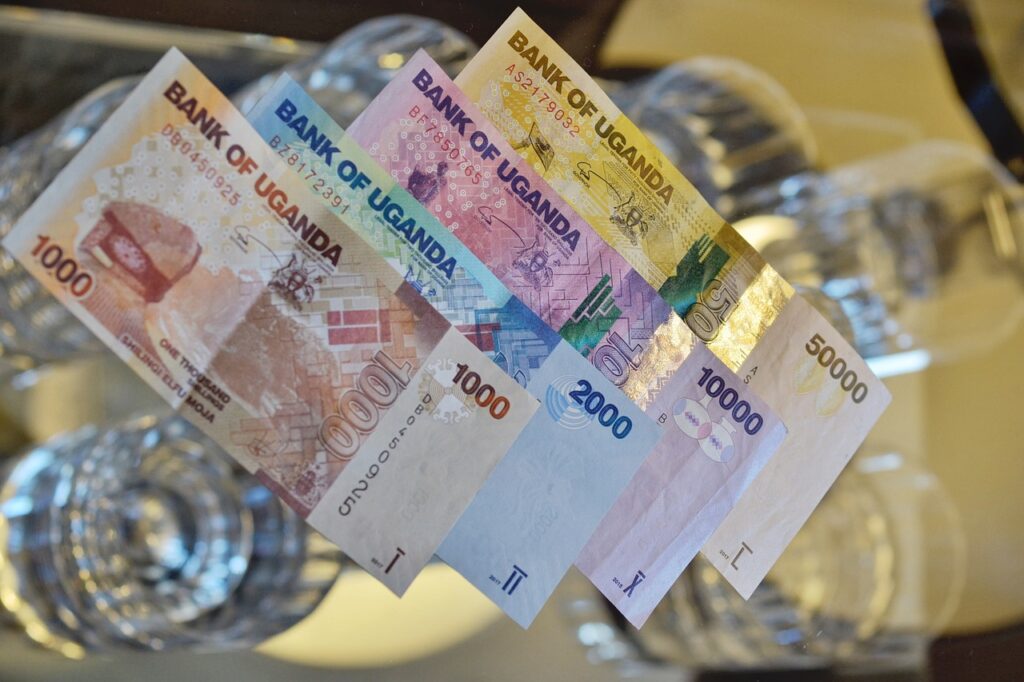 Currency: The shilling (code: UGX) is the official currency of Uganda. The shilling has no subdivision as of 2013 and is commonly found in denominations of 1,000/=, 2,000/=, 5,000/=, 10,000/=, 20,000/=, 50,000/= bills and 100/=, 200/=, 500/=, 1,000/= coins. The currency’s central bank is the Bank of Uganda and the Ugandan Shilling is considered a relatively stable currency. It is primarily used as the currency of choice in Uganda and in its foreign exchange market. Also accepted as tender in Uganda, are the United States dollar, euro and sterling.
Currency: The shilling (code: UGX) is the official currency of Uganda. The shilling has no subdivision as of 2013 and is commonly found in denominations of 1,000/=, 2,000/=, 5,000/=, 10,000/=, 20,000/=, 50,000/= bills and 100/=, 200/=, 500/=, 1,000/= coins. The currency’s central bank is the Bank of Uganda and the Ugandan Shilling is considered a relatively stable currency. It is primarily used as the currency of choice in Uganda and in its foreign exchange market. Also accepted as tender in Uganda, are the United States dollar, euro and sterling.
Current exchange rate is of 3767.43 Ugandan Shillings to 1 US Dollar, or 4590.15 Ugandan Shillings to 1 Great British Pound (18 October 2023).
https://www.oanda.com/currency-converter/en/?from=UGX&to=USD&amount=3767.43
https://www.oanda.com/currency-converter/en/?from=UGX&to=GBP&amount=4590.15
History and Key Events
Precolonial & colonial Era
- 1000BC – Bantu speaking farmers arrive in southern Uganda, while Nilotic speakers settle in the northeast.
- 1000BC-500AD – Kitara Empire controls East Africa’s great lakes region. At its peak, the empire, also known as the Empire of the Sun, Empire of the Moon, rules much of the Nile valley.
- 13th Century – Buganda unified under its first king Kato Kintu, the founder of Buganda’s Kintu dynasty.
- 18th-19th Centuries – Buganda and its rival Bunyoro become the region’s most powerful kingdoms.
- 1830s – Arab traders move into the region from the Indian Ocean.
- 1869 – Khedive Ismail Pasha of Egypt seeks to annex land north of Lake Victoria and sends British explorer, Samuel Baker on a military expedition. Baker is defeated by the Banyoro kingdom.
- 1886 – Series of religious wars in Buganda, initially between Muslims and Christians and then, from 1890, between Protestant and Catholics factions of the population.
- 1894 – British government annexes Buganda and adjoining territories to create the Uganda protectorate in order to protect the river Nile trade route.
- 1890s – Labourers from British India are brought to East Africa, initially to build the Uganda Railway.
- 1962 – Independence: Federal constitution with Muteesa, King of Buganda, as president and Milton Obote as prime minister.
Independence
- 1963 – Uganda becomes a republic.
- 1962-66 – Buganda crisis. Uganda’s immediate post-independence years are dominated by a power struggle between the central government and the largest regional kingdom – Buganda.
- 1967 – Milton Obote seizes power in a coup and abolishes Uganda’s tribal kingdoms.
- 1971-79 – General Idi Amin seizes power.
- 1980 – Milton Obote returns to power.
- 1980-86 – Ugandan Bush War between Obote’s government and a number of rebel groups, most importantly the National Resistance Army (NRA).
- 1986 – Leader Yoweri Museveni seizes power, heralding a period of stability.
- 2005 – Referendum endorses multi-party politics but lifts presidential term limits, allowing President Museveni to stand for a third term.
- 2006 February – President Museveni wins multi-party elections, taking 59% of the vote against the 37% share of his rival, Kizza Besigye. President Museveni will be reelected in 2011 and 2016.
- 2017 December – Parliament votes to remove the age-limit for presidential candidates, clearing the way for President Museveni to run for another term.
Ugandan Food
Uganda is a special place with a variety of unique tastes and traditions, from local snacks to the common and popular foods in Uganda. Unlike in other nations, fresh and preservative-free food is quite affordable in Uganda. Matoke (plantain bananas) is the national dish and features in a lot of traditional meals. Cassava, sweet potatoes, white potatoes, yams, beans, peas, groundnuts, cabbage, pumpkins, and other vegetables are among the food crops that are locally grown by many households and families. Oranges, pawpaws (papayas), lemons, and pineapples are among the fruits farmed and enjoyed as desserts and snacks between breakfast and supper. The following is a list of typical Ugandan recipes:
Fried Chapati: Chapati is a popular side dish and bread staple in Uganda. This bread is usually sliced into triangular shapes and served as a side dish for the main course. Chapatis are prepared by mixing wheat flour, baking powder, onions, green pepper, carrots, salt, and water, and the mixture is then flattened and fried in limited amounts of oil.
Ugandan Egg Rolls: An egg roll in Uganda comprises a hard-boiled egg wrapped inside a ball of mixed, mashed potatoes with a few vegetables, dipped in whisked eggs, and given a golden fry. You can eat this tasty snack for breakfast, lunch or have it as a side dish. It is sold in almost all hotels and restaurants countrywide.
Chicken-Nut Sauce This recipe is made by frying onions, chicken stock, pieces of chicken, spices, and peanut buttercream in a stew pot. After preparation, chicken-nut is generally eaten with rice, posho (Ugali), or matooke, which gives you a feeling of life satisfaction.
Kikalayi (Fried Pork) The name refers to large and durable locally crafted frying pans used for cooking. Kikalayi is best when enjoyed with mates, which is why it is presented grandly on a large round tray (with optional red chili). If you like pork, Kikalayi is something you can try.
Ugandan Rice Balls/Rolls (Namungodi) are a deep-fried breakfast snack. This is a combination of boiled rice, mashed potatoes (which makes the boiled rice stick together), and flour dipped in whisked eggs and other ingredients to add flavor. It is then deep-fried until golden brown to give it that crispy texture.
Matooke (Steamed Mashed Bananas) is a popular Ugandan dish and a staple meal for most Bantu tribes. Matooke is grown from such farms and sent to city dwellers. Plantains are sometimes peeled and steamed, then mashed and served with a sauce of your choice. Matooke can be fried with tomatoes and onions.
Beef Luwombo this dish is steamed in soft, warmed banana leaves. Ingredients include onions, tomatoes, green pepper, carrots, garlic, beef, and optional Irish potatoes. You can add spices for flavor and taste, and it is served with matooke, rice, cassava, sweet potatoes, or chapati.
Fried Grasshoppers (Ensenene) is a traditional fried grasshopper dish marketed in bars and roadside restaurants. This famous snack is only available during the rainy season, mostly in November and April. The grasshoppers are cooked in the natural oils of grasshoppers.
Things to see and do in Uganda

Nestled in the heart of East Africa, Uganda stands as a captivating mosaic of lush landscapes, diverse wildlife, and vibrant cultures. Often referred to as the “Pearl of Africa,” this enchanting nation invites travelers to embark on an extraordinary adventure. From the iconic savannahs of Queen Elizabeth National Park to the mist-covered mountains of Bwindi Impenetrable Forest, Uganda offers a kaleidoscope of natural wonders.
Home to the endangered mountain gorillas, Uganda provides a unique opportunity for unforgettable encounters with these majestic creatures in their natural habitat. But the allure of Uganda extends beyond its wildlife, with the tranquil waters of the Nile River, the vibrant markets of Kampala, and the cultural richness of its various tribes painting a rich tapestry of experiences.
Join us on a journey through the wonders of Uganda, where every step unveils a new facet of this diverse and welcoming land. Whether you’re an adventure seeker, a wildlife enthusiast, or a cultural explorer, Uganda promises an immersive and unforgettable expedition into the heart of Africa.
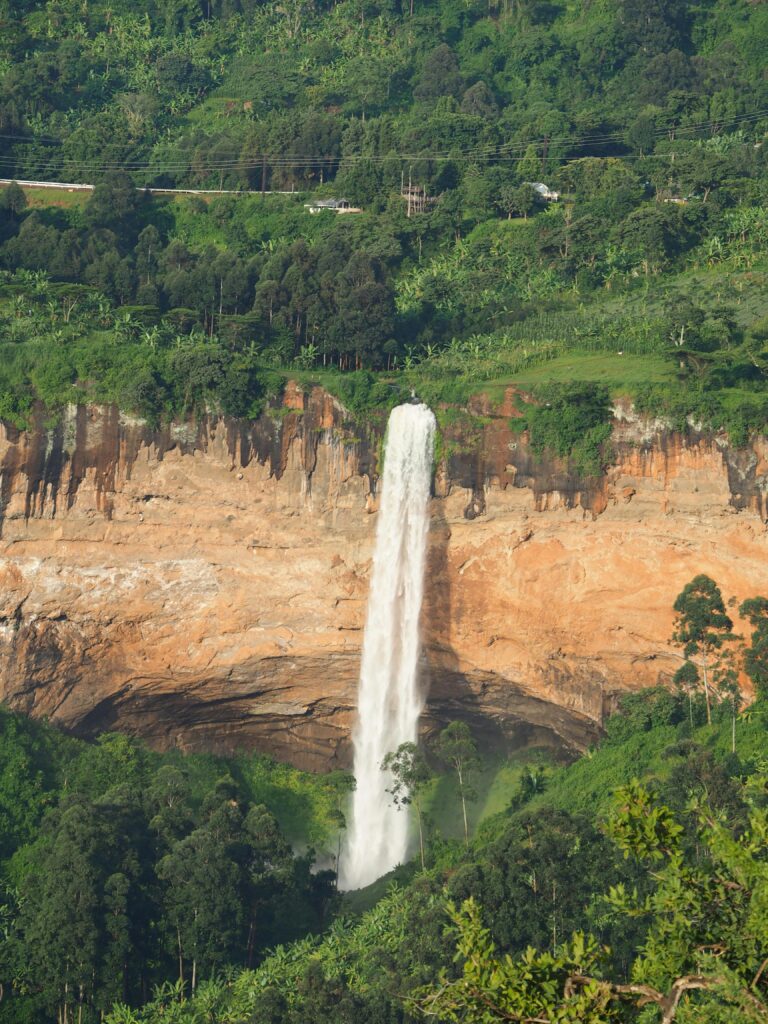 Stop by the Equator Crossing: The equator is an imaginary line that separates the earth’s northern and southern hemispheres. The main equator mark in Uganda is at Kayabwe, along the Masaka road. The Equator crossing is an excellent stopover for tourists visiting Queen Elizabeth, Bwindi, Lake Mburo and Mgahinga National Parks.
Stop by the Equator Crossing: The equator is an imaginary line that separates the earth’s northern and southern hemispheres. The main equator mark in Uganda is at Kayabwe, along the Masaka road. The Equator crossing is an excellent stopover for tourists visiting Queen Elizabeth, Bwindi, Lake Mburo and Mgahinga National Parks.
Visit the Source of the Nile in Jinja: The source of the Nile in Uganda has been in existence for millions of years but it became known to the world when a British explorer John Speke discovered it. From there, it became a very famous spot and developed into a great tourist attraction.
Uganda National Museum: Uganda Museum is the oldest museum in East Africa which was started in 1908. It emerged when the Governor George Wilson called for “all articles of interest in Uganda”. The museum is a collection of traditional culture and Ugandan Music with all kinds of musical instruments, archaeology, history, science, and natural history.
Visit the Source of the Nile in Jinja: The source of the Nile in Uganda has been in existence for millions of years but it became known to the world when a British explorer John Speke discovered it. From there, it became a very famous spot and developed into a great tourist attraction.
Primate Viewing Adventures are the biggest tourist attractions in Uganda. With over 19 primate species and a good number of human-habituated primate troops in their natural habitats, Uganda offers the best primate viewing adventures on the continent and an excellent sustainable tourism program.
Kasubi Tombs: This is the burial grounds for the Kings of Buganda (Kabakas of Buganda) and it has been recognized by UNESCO in December 2001 as the World heritage site of local and international importance in the entire region of sub-Saharan Africa. Kasubi tombs as the world heritage site comprise of 26 hectares of land and it is used for agricultural purpose by using traditional techniques by the royal family members.
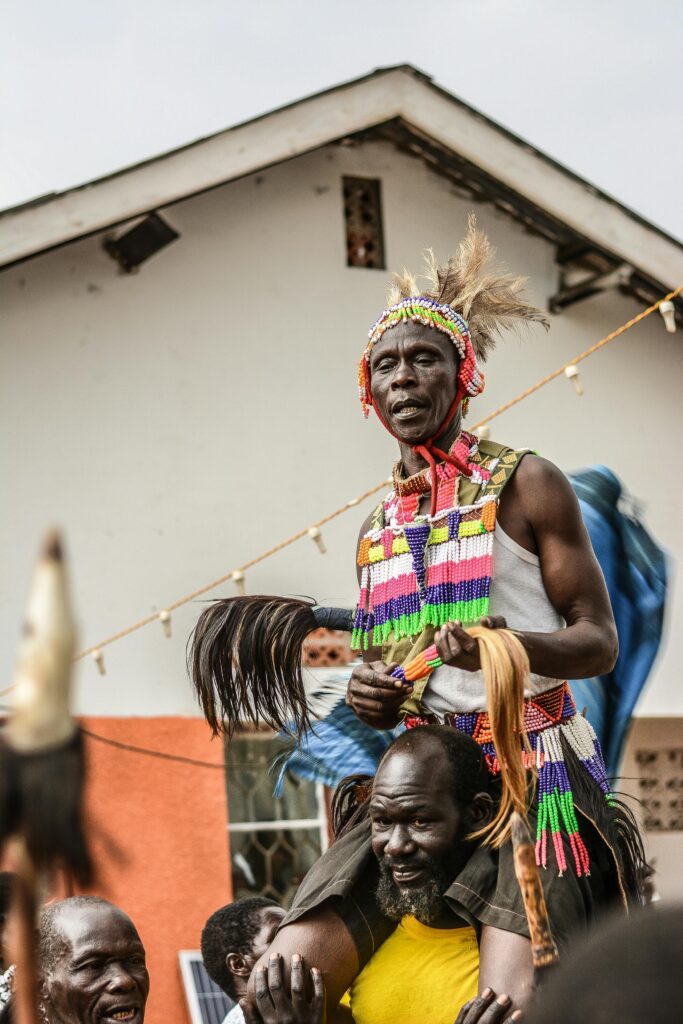
Ndere Cultural Center is a place located few kilometers away from Uganda’s capital ‘’Kampala’’ which is best visited in evening hours because it’s their hours of entertaining to visitors with interesting traditional dance and drummer, where visitors can be filled with laughers as waiters serve them with sweet campaign and snacks, it’s a place you will leave with a story to tell the rate because of their worth traditional dances. However, Ndere culture Centre was officially opened in 2003 as a home of Uganda pioneering traditional dance group which sits 9 acres of well-maintained green environment with beautiful flowered walk ways, shaded by very mature fruits and other African trees.
Economy
Uganda is a market-based economy rich in natural resources and has one of the fastest-growing and youngest populations in the world. Top prospects include agriculture and estimated recoverable oil reserves of over 1.4 billion barrels, and with first oil expected in 2025. The economy is basically agricultural, and it occupies some four-fifths of the working population. Uganda’s moderate climate is especially congenial to the production of both livestock and crops. Uganda has a total of 6.5 billion barrels of oil out of which, 1.5 billion is recoverable. A total of 111 exploration and appraisal wells have been drilled in the country since 2006, out of which 99 wells encountered oil and/or gas in the subsurface. Government has therefore focused on the development of necessary oil infrastructure such as the crude oil pipeline that runs from Hoima in Uganda to Tanga in Tanzania.
Doing Business in Uganda
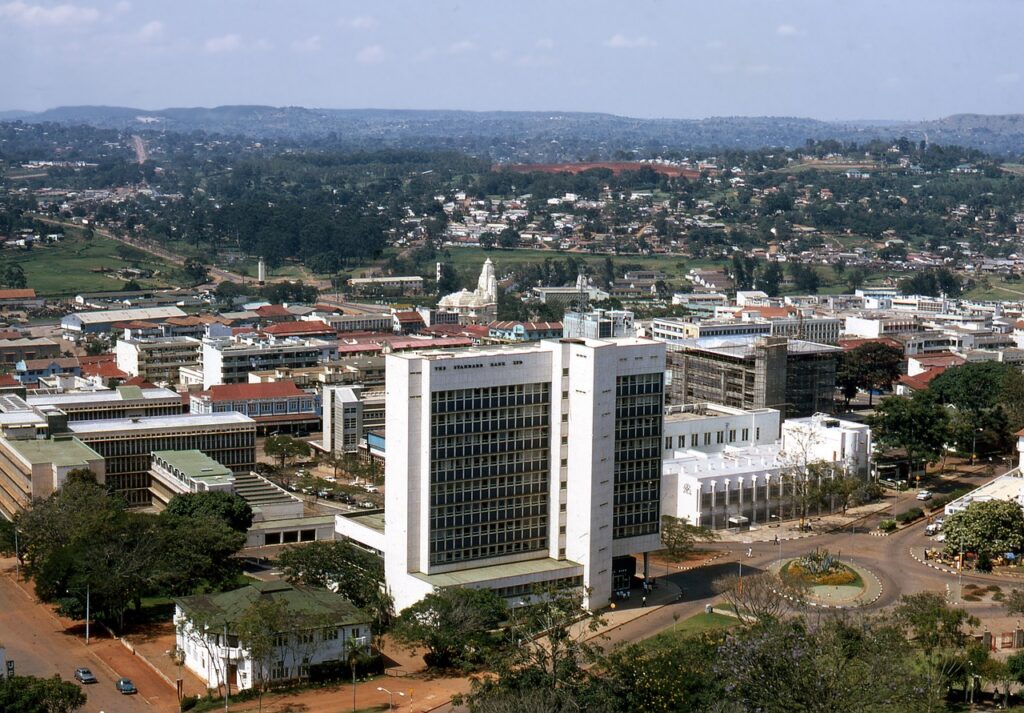
Ease of Doing Business Index Scores
Overall score: 60.0 (2020)
Starting a business score: 71.4 (2020)
Trading across Borders score: 66.7 (2020)
Enforcing Contracts score: 60.6 (2020)
Legal System: Given that Uganda was a British colony, the English legal system and law are predominant in Uganda. Uganda’s legal system is based on English Common Law and African customary law. However, customary law is in effect only when it does not conflict with statutory law. The laws applicable in Uganda are statutory law, common law; doctrines of equity and customary law are applicable in Uganda. The Constitution is the supreme law in Uganda and any law or custom that is in conflict with it is null and void to the extent of the inconsistency. The other written law comprises statutes, Acts of Parliament and Statutory Instruments.
Company creation procedures:
- Submit the Name Reservation Form to the assessment window of the Uganda Registration Services Bureau (URSB) and obtain the bank payment slip
- Pay the name reservation fees at the bank
- Reserve the company name at the Office of the Registrar, Uganda Registration Service Bureau
- Obtain the slip-in for the payment of the registration fee and the stamp duty from URSB
- Pay the registration fees at a designated bank
- File the registration documents at the Office of the Registrar and Obtain the Certificate of Incorporation
- Obtain a Tax Identification Number (TIN) and Register for taxes at the Uganda Revenue Authority
- Receive inspection of the business premises by the Uganda Revenue Authority (URA)
- Obtain trading license from the Kampala Capital City Authority
- Receive inspection of the business premises by the licensing officer and obtain the assessment form from Kampala Capital City Authority
- Pay the license fee at the bank
- Register with the National Social Security Fund (NSSF)
- Make a company seal
Uganda Investment Authority (UIA)
Uganda Investment Authority (UIA) set up under the Investment Code 1991 (revised in 2019) is a statutory agency mandated to initiate and support measures that enhance investment in Uganda and advise Government on appropriate policies conducive for investment promotion and growth. The changing investment environment and Government priorities have necessitated the modification of UIA’s mandate.
Uganda Investment Authority is a semi-autonomous government agency which drives national economic growth and development in partnership with the private sector. As an Investment Promotion Agency, UIA mainly: markets investment opportunities; promotes packaged investment projects; ensures local and foreign investors have access to information, especially about the business environment so as to make more informed business decisions; and offers business support, advisory and advocacy services.
Objectives of UIA:
- Attract value adding investment that brings technology, skills and
- Contribute to the image of Uganda as a leading African Investment destination.
- Stimulate & lead key stakeholders in creating a competitive business environment.
- Setup and develop Industrial and Business Parks
- Offer support to SMEs.
Why invest in Uganda
- Fastest growing economy in East Africa Community with a GDP of over US$ 40.43 Billion (WB, 2021). GDP forecast for 2023, 6.2%.
- FDI inflows in Uganda has consistently increased despite Covid-19 Pandemic Example: From US$807.00m in 2019 to US$ 1.14Bn in 2021.
- FDI inflows in Uganda continues to increase due to Uganda’s stable and consistent macro-economic policies, liberalized business environment and increased regional trade.
- Uganda is the 2nd most bio diverse country in Africa 2020.
- Uganda has the Lowest Labour Cost in EAC region Average yearly wage for unskilled production operative.
- Uganda has the highest adult literacy in EAC, workforce aged 15-24 about 90%.
- One of the best tourist destinations in the world.
- Uganda is the Number one, regional leader in Capital Markets Growth
Investment Opportunities:
- Power Generation Projects in the Medium-Term Government is making effort to develop the following power generation projects through Public-Private Partnership (PPP):
- 30MW cogeneration from bagasse by 2020.
- 450MW geothermal power
- The Oil & Gas sector has significant potential to contribute to inclusive growth in the country as it expected to bring in investments between US$15 to US$20 billion in the next three to five years.
- Mineral Value Addition: More than 80% of the country has been surveyed for mineral quantities and locations. New geo-data shows that Uganda has large underexploited mineral deposits of gold, oil, high grade tin, tungsten/wolfram, salt, beryllium, cobalt, kaolin, iron ore, glass sand, vermiculite, phosphates (agricultural fertilizer), uranium and rare earth elements.
- Pharmaceuticals: Uganda combines a growing pharma market with access to the EAC market of 175 million people. With relatively high levels of skills and education and an investor-friendly environment, Uganda is a burgeoning pharmaceuticals center.
- Tourism is a fast-growing sector supported by the fact that Uganda is ranked as a top tourist destination and one of only three countries with about 50% of the world’s known population of endangered mountain gorillas. (Source: Lonely planet 2012 and CNN 2016, which ranked Uganda among the top 16 holiday destinations in the world)
- Agriculture Value Addition: The Ugandan Government is pushing for greater commercialisation of agriculture by encouraging the use of irrigation and mechanised farming. Opportunities for investment exist in:
- Commercial farming in both crops and animal industries as well as aquaculture;
- Value addition (agro-industries, agro food industries);
- Manufacturing of inputs such as improved seeds, fertilisers and pesticides
- Cold storage facilities and logistics
- Farm machinery manufacturing and assembly
- Packaging
- Irrigation schemes.
Ugandan Flagship Projects
The Uganda Refinery Project: Government of Uganda plans to develop a 60,000 barrels of oil per day refinery at Kabaale, Buseruka Sub-County in Hoima District. The Uganda Refinery Project includes:
- The refinery to be located at Kabaale in Hoima,
- a 211 km long multi-products pipeline that will evacuate refined products from the refinery to a storage terminal at Namwabula, Mpigi District
- the Mbegu Water Intake and its corresponding water pipeline and,
- the storage terminal itself, for the refinery products located at Namwabula in Mpigi District.
Nuclear Energy: In a significant stride toward bolstering Uganda’s energy capacity and achieving its ambitious goal of 52,000 MW by 2040, the Ugandan Ministry of Energy and Mineral Development has inked a momentous Memorandum of Understanding (MOU) with South Africa’s Lesedi Nuclear Services (PTY). The MOU underscores the commitment of both nations to enhance Uganda’s nuclear capabilities, bridging the energy poverty gap and driving development.
Health
Uganda faces some health crises. There isn’t a mandatory vaccine, but you should follow some vaccine recommendations.
It is strongly recommended that you visit a travel vaccination clinic and get other vaccinations and a prophylaxis for malaria.
COVID-19
Travelers entering Uganda no longer need to present a Covid-19 Vaccine certificate or a PCR test.
Immigration
The Government of Uganda introduced an online visa/permit application system with effect from 1st July 2016. The Uganda Electronic Visa/Permit Application System performs checks against law enforcement databases. All travelers seeking admission to Uganda are required to obtain a visa using this system prior to being granted boarding. All persons intending to travel to Uganda for holiday, tourism, business, study, visit, and/or medical are required to apply and obtain a visa online. Applications should be filled at the following link: https://visas.immigration.go.ug/
Unique Facts About Uganda
The Grey Crowned Crane is the national bird and symbol of Uganda, because of its beauty and humble ways. It appears on all instruments of the state and the national Coat of Arms.
The grey crowned crane is a tall bird that stands at an average of 3 feet tall. That is close to 1 meter in height. Grey crowned cranes can be found in mixed wetland/grassland habitats in eastern and southern Africa, with the largest remaining populations in Kenya, Uganda, Zambia, and South Africa.
Youngest country in the world: As of 2023, Uganda has the world’s youngest population with more than 78% below 30. Also, Kampala in Uganda has been named the youngest city in the world as almost three quarters of its residents are under the age of 30, with half under the age of 16. To cater for the surprisingly large young population, Kampala has made substantial investments in education and skills development to benefit those young people and children. Young visionaries are apparently transforming their passions into thriving startups and small businesses that not only cater to the needs of their communities but also address local challenges.
UgandaTravel Business Assistance
Are you planning to move your business to Uganda or open up Uganda as a new market? Perhaps there is a conference in Uganda you need to attend and you need some help. We are here for your Uganda Travel Business Assistance.
